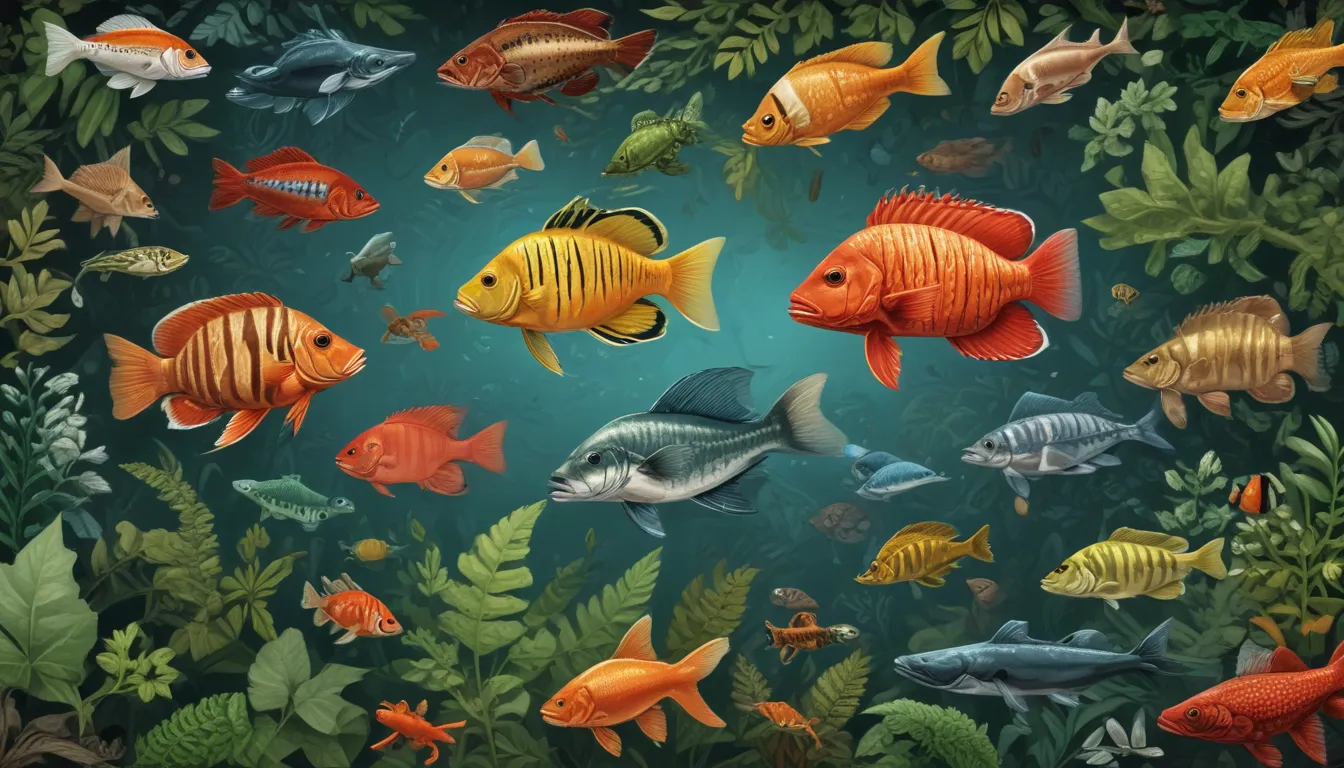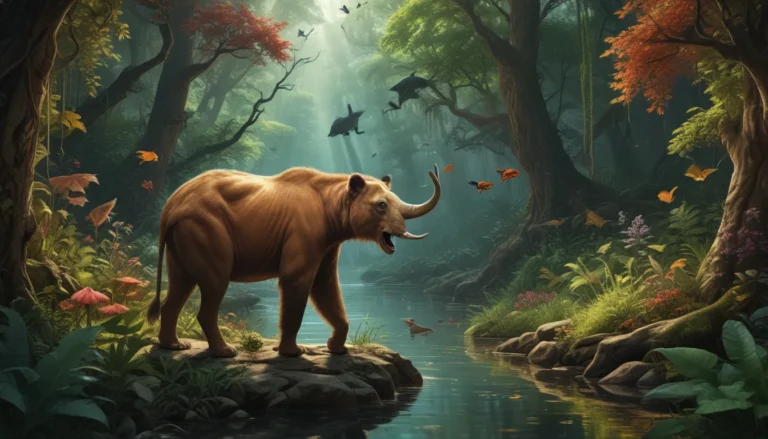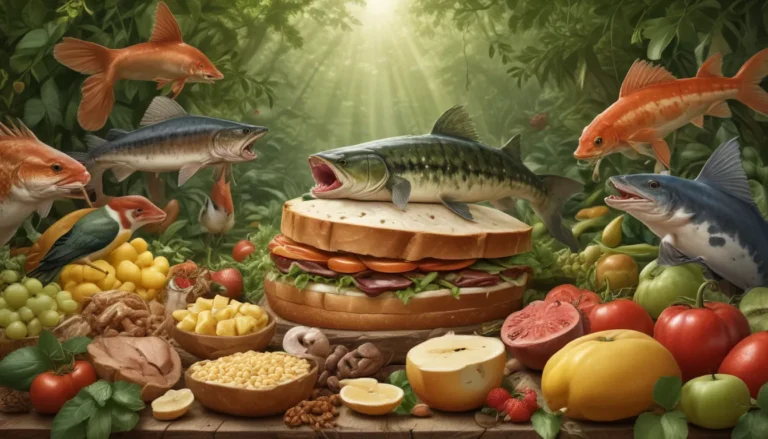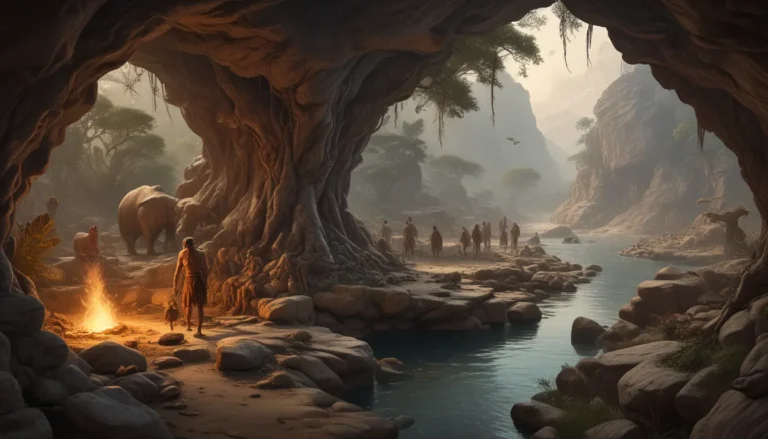A Note About Images: The images used in our articles are for illustration purposes only and may not exactly match the content. They are meant to engage readers, but the text should be relied upon for accurate information.
Welcome to the captivating world of biological diversity, where the variety of life on Earth is nothing short of extraordinary. From the lush Amazon Rainforest to the vibrant Great Barrier Reef, our planet is teeming with an astonishing array of species that contribute to the delicate balance of our ecosystems. In this article, we will uncover 19 unbelievable facts about biological diversity that will deepen your appreciation for the wonders of the natural world. Get ready to embark on a journey of discovery as we explore the fascinating and awe-inspiring aspects of biodiversity.
Delving Into the Wonders of Biological Diversity
Biological diversity, also known as biodiversity, is a remarkable aspect of our planet that encompasses the incredible variety of life forms on Earth. It is crucial for maintaining the balance of our delicate ecosystems and plays a vital role in sustaining life on our planet. In this section, we will delve into some key takeaways about biodiversity and explore fascinating facts that highlight the sheer complexity and beauty of life on Earth.
The Amazon Rainforest: A Biodiversity Hotspot
The Amazon Rainforest is a true marvel of biological diversity, housing the highest concentration of species on the planet. Spanning nine countries, the Amazon is home to over 40,000 plant species, 1,300 bird species, 3,000 types of fish, and millions of insects. This biodiversity hotspot is a critical ecosystem that must be protected to preserve the rich tapestry of life on Earth.
The Great Barrier Reef: Nature’s Masterpiece
Stretching over 2,300 kilometers, the Great Barrier Reef is the largest living structure on Earth. Made up of billions of coral polyps, this magnificent reef is home to over 1,500 fish species and an extraordinary array of marine life. Protecting this unique ecosystem is essential for the preservation of biological diversity.
Antarctica: A Surprising Haven for Life
Despite its icy reputation, Antarctica harbors a surprising variety of life, including penguins, seals, and krill. The unique ecosystems of Antarctica have adapted to survive in extreme cold and darkness, showcasing the resilience and diversity of life on our planet.
The Intriguing World of Insects
From bees and butterflies to beetles and ants, insects account for over half of all known species on Earth. These tiny creatures play essential roles in pollination, decomposition, and ecosystem balance. Their diversity and abundance highlight the intricate web of life that sustains our planet.
Exploring the Depths of Species Diversity
The number of species on Earth is estimated to be between 8.7 and 30 million, showcasing the vast and still undiscovered diversity of life on our planet. Despite centuries of scientific exploration, we have only scratched the surface when it comes to cataloging the myriad species that exist in our world.
The Vision of the “Father of Biodiversity”
Biologist E.O. Wilson is credited with coining the concept of biological diversity and is often referred to as the “father of biodiversity.” His groundbreaking work in studying the interconnectedness of species and habitats has deepened our understanding of the importance of biodiversity conservation.
The Impact of Biodiversity Loss
The loss of biodiversity can have devastating consequences for ecosystems and human well-being. When species go extinct or habitats are destroyed, it disrupts the delicate balance of ecosystems and can lead to negative impacts on food security, climate regulation, and disease control. Protecting biodiversity is essential for the health of our planet and all its inhabitants.
The Vital Role of Forests and Oceans
Forests are vital in preserving biological diversity, providing habitat for countless species and playing a crucial role in carbon sequestration and climate regulation. Likewise, our oceans are teeming with life, supporting a diverse array of marine species and providing valuable resources for the planet. Both forests and oceans are essential for maintaining biodiversity.
Genetic Diversity: A Key to Survival
Genetic diversity is important for the survival of species, allowing them to adapt to changing environmental conditions and increase their chances of survival in the face of threats such as disease outbreaks or climate change. Protecting genetic diversity is crucial for ensuring the resilience of ecosystems.
Human Impact on Biodiversity
Human activities, including deforestation, habitat destruction, pollution, overfishing, and climate change, are the leading causes of biodiversity loss. These factors contribute to the decline of species and ecosystems worldwide, highlighting the urgent need for sustainable practices and conservation efforts.
Biodiversity Hotspots: Gems of Conservation
Biodiversity hotspots are areas with exceptionally high levels of endemic species, such as Madagascar and the Galapagos Islands. These hotspots are of global importance for conservation efforts as they contain a significant number of unique species found nowhere else on Earth. Protecting these areas is crucial for preserving biodiversity.
The Accelerated Rate of Extinction
The extinction rate is currently estimated to be 1,000 times higher than the natural background rate, signaling a global crisis in biodiversity loss. Human activities have accelerated the rate of species extinction, leading to what scientists term the sixth mass extinction event in Earth’s history. Addressing this crisis is essential for the survival of our planet’s biodiversity.
The Economic Value of Biodiversity
Biodiversity is important for economic development and livelihoods, with many communities relying on biodiversity for agriculture, fisheries, medicine, and ecotourism. The diverse resources provided by biodiversity support human well-being and contribute to economic prosperity around the world.
Ecosystem Services: Nature’s Gift
Biodiversity provides essential ecosystem services, including water purification, climate regulation, soil fertility, and natural pest control. These services are underpinned by biodiversity and are vital for maintaining the health of our planet. Protecting biodiversity ensures the continuation of these essential services.
Conservation Efforts: Safeguarding Our Future
Conservation efforts are crucial for preserving biological diversity, with protected areas, species reintroduction programs, sustainable land-use practices, and international agreements playing key roles in safeguarding biodiversity. By supporting conservation initiatives, we can protect the rich tapestry of life on our planet.
The Role of Citizen Science
Citizen science initiatives play a valuable role in monitoring biodiversity, with citizen scientists contributing data on species distribution, behavior, and population trends. Their efforts enhance our understanding of biodiversity patterns and support conservation efforts around the world.
Indigenous Stewards of Biodiversity
Indigenous peoples are key stewards of biological diversity, possessing traditional knowledge of ecosystems and playing a vital role in conservation efforts. Many indigenous communities have lived in harmony with nature for generations, preserving the intricate web of species that enrich our planet.
Every Species Matters
Each species has a unique role in maintaining the web of life, from predators to pollinators. Every species plays a crucial role in the delicate balance of ecosystems, and the loss of even a single species can have cascading effects throughout the entire food chain. Protecting and conserving biodiversity is essential for sustaining the interconnected web of life on Earth.
Celebrating the Marvels of Biodiversity
These 19 unbelievable facts about biological diversity showcase the immense importance of protecting and preserving the rich tapestry of life on our planet. Through sustainable practices and conservation efforts, we can ensure a future where both humans and nature can thrive in harmony. Let’s continue to spread awareness, support conservation initiatives, and celebrate the incredible diversity of life on Earth. Together, we can make a difference and secure a thriving future for our planet and its magnificent inhabitants.
Conclusion
Biological diversity is a treasure that enriches our planet and sustains life in all its wondrous forms. The 19 fascinating facts about biodiversity highlighted in this article offer a glimpse into the incredible variety of life forms that make our world so vibrant and diverse. By understanding and appreciating the importance of biodiversity, we can work together to protect and conserve the precious ecosystems that support us all. Let’s continue to champion biodiversity conservation, educate others about its significance, and ensure a sustainable future for generations to come.
FAQs
Q: Why is biological diversity important?
A: Biological diversity is crucial for ecosystem stability, essential services, and human wellbeing, providing resources for food, medicine, and other products.
Q: How many species are estimated to exist on Earth?
A: Scientists estimate that there are between 5 and 30 million species on Earth, with many yet to be discovered and described.
Q: What are the main threats to biological diversity?
A: Habitat loss, climate change, pollution, overexploitation of resources, invasive species, and human activities pose significant threats to biodiversity.
Q: How does biological diversity impact human health?
A: Biological diversity is key to human health, providing natural resources such as food, medicine, and clean water. Disruption of biodiversity can lead to ecological imbalances and health risks.
Q: What can individuals do to protect and conserve biological diversity?
A: Individuals can contribute to biodiversity conservation by adopting sustainable lifestyles, supporting conservation organizations, conserving natural habitats, reducing carbon footprints, and raising awareness about biodiversity importance.
Embark on a journey of discovery and continue exploring the marvels of biodiversity with more captivating stories and facts about the wonders of nature. Let’s cherish and protect the richness of life on Earth for the well-being of all living beings!






